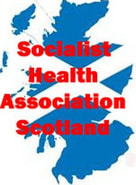“Imagine there was a virus you’d never heard of which increased the likelihood of mortality by 26%, or a condition which had a death rate comparable to smoking 15 cigarettes a day. A national health crisis would be declared, and judging by the reaction to the coronavirus, panic would ensue. This public health crisis, which leaves its victims more than twice as likely to develop Alzheimer’s and other dementias, has a name: loneliness.”
More than two million adults in the UK suffer from chronic loneliness, across all age groups, although older people often also feel socially isolated. Changes in the workplace, church attendance and the closure of social spaces like pubs and clubs have all contributed to this condition.
There is a wealth of evidence that place impacts on health and wellbeing and contributes to creating or reducing inequalities.
The Place Standard Tool[1] was developed in collaboration with NHS Health Scotland (NHS HS), provides a framework for place-based conversations to support communities, public, private and third sectors to work together to deliver high quality, sustainable places.
The Royal Society for Public Health recommend[2] measures to make our high streets more health promoting including differential rent classes and business rates relief based on how health promoting their business offer is. Planning should also restrict the opening of unhealthy outlets where there are already clusters.
With rising levels of poor mental health in Scotland, we overlook the importance of social cohesion and social support. A 2017 Harvard study, by Michael Zoorob, shows that communities with strong social capital were more likely to be insulated from the opioid crisis. Other studies[3] point to the value of community gardens or allotments and how responsible citizenship improves mental wellbeing. In Singapore, the open spaces associated with housing projects are used for exercise, meetings, affordable dining and markets.
Healthy communities also have to be sustainable communities. For example, tackling air pollution involves difficult decisions, but when it contributes to 2,500 early deaths in Scotland every year, urgent action is necessary. We need clean and fair transport systems, where public transport, walking, and cycling are valued as much as motor vehicles.
The latest NHS Health Scotland statistics suggest that 65 per cent of adults are overweight, with 29 per cent of this percentage being obese. Better access to community-based sports facilities would be an investment in addressing this issue – not a cost. The Scottish Parliament’s Health and Sport Committee report[4] on social prescribing argues that; “social prescribing, can contribute as part of preventative care for health and wellbeing. Addressing accessibility to, and awareness of, community and voluntary schemes will improve individuals' health and wellbeing outcomes.”
This would be easier to achieve if GP practices were physically situated in the community hubs we describe above in the chapter on public service reform. Social prescribing could be available to a range of health staff, including link workers and requires dedicated preventative budgets. The MSP report also highlights the growing inequality between active and non-active populations by area of deprivation, with its consequential health and wellbeing impacts.
During the pandemic, there has been brilliant community support for our NHS hospital, community and social care workforce who have responded magnificently. Welcome though the claps were, workers were all too often left exposed to unacceptable safety risks.
One of the lessons learned must be the importance of local health planning and public health. Centralised solutions and computer apps took too long to organise and were often unfit for purpose. Countries with strong locally based systems of contact and trace using staff who know their local community did markedly better.
The pandemic has also exposed the frailty of our fragmented and under-resourced social care 'system' in Scotland. A disproportionate number of deaths from Covid-19 were in care homes, who have struggled with inadequate staffing and very limited PPE. As Nick Kempe’s paper[5] for Common Weal points out, this was a predictable crisis, exacerbated by the decision to transfer people from hospitals without proper testing in the early weeks of the crisis. He argues that:
“Scotland has a regulatory framework which puts private ownership and private financial interests before care and there are no effective mechanisms for improving standards of care in failing Care Homes. 'Partnership working' (cooperation with private companies) comes before standards.”
If you talk to care staff in countries like Norway, who have a more local system of care, they emphasise the importance of local accountability. As one care home manager explained, “a man from Oslo comes once a year with a clip board. But real accountability is being challenged by local people in the shops”. We need to rethink the whole approach to care homes, including privatisation, and strengthen links with communities, rather than segregating older people.
The home care system is equally fragmented, even if somewhat less privatised. There is a strong case for setting a consistent framework for social care while retaining local delivery. We need integration and parity of esteem and a Scottish Care Service could be part of that solution. We should also not forget support for informal carers who have faced additional pressure during the pandemic.
It has been claimed that COVID-19 is a 'great leveller'. The emerging data shows it is nothing of the sort. As ever, it is the poor and vulnerable who suffer the most, with particular concerns for BAME groups and the elderly. The ‘Black Lives Matter’ protests have highlighted many aspects of racism, few of which Scotland is exempt from. Stronger communities are open, welcoming communities, where racism is recognised and challenged.
The pandemic is already increasing health inequalities and any return to austerity economics will exacerbate inequality. The new normal requires a public health approach that tackles health inequalities locally and nationally.
[1] http://www.healthscotland.scot/media/1394/place-standard-process-evaluation_may2017_english.pdf
[2] https://www.rsph.org.uk/uploads/assets/uploaded/dbdbb8e5-4375-4143-a3bb7c6455f398de.pdf
[3] https://theconversation.com/volunteering-mutual-aid-and-lockdown-has-shifted-our-sense-of-happiness-141352
[4] https://digitalpublications.parliament.scot/Committees/Report/HS/2019/12/4/Social-Prescribing--physical-activity-is-an-investment--not-a-cost#Background-to-the-inquiry
[5] https://commonweal.scot/policy-library/predictable-crisis

 RSS Feed
RSS Feed